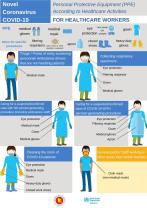Is “cleared for surgery” adequate?
"Cleared for surgery" is a term commonly used in medical contexts, and while it indicates that a patient has undergone certain assessments and is considered suitable for a surgical procedure, it doesn't provide the complete picture. To ensure patient safety and the success of the surgery, several important considerations go beyond a simple "cleared for surgery" label. Here are some key points to consider:
Medical History: A thorough review of the patient's medical history is essential. This includes evaluating past illnesses, chronic conditions, allergies, medications, and any previous surgeries. Some medical conditions may require specific preoperative preparations or precautions.
Physical Examination: A comprehensive physical examination is conducted to assess the patient's overall health and identify any potential concerns that may affect the surgery or recovery.
Preoperative Testing: Depending on the type of surgery and the patient's health, various preoperative tests may be required. These tests can include blood work, electrocardiograms (ECGs), imaging (such as X-rays or CT scans), and more.
Consultations: Depending on the complexity of the surgery and the patient's medical history, consultations with specialists (e.g., cardiologists, pulmonologists, anesthesiologists) may be necessary to assess specific aspects of the patient's health.
Informed Consent: Patients should be fully informed about the risks, benefits, and alternatives of the proposed surgery. Informed consent is a crucial ethical and legal requirement.
Anesthesia Evaluation: If anesthesia is required, an evaluation by an anesthesiologist is critical. This ensures that the patient is a suitable candidate for anesthesia and helps determine the most appropriate anesthesia technique.
Medication Management: Reviewing the patient's medications is important. Some drugs may need to be adjusted or temporarily stopped before surgery to reduce the risk of complications.
Nutrition and Hydration: Patients should be in an optimal state of nutrition and hydration before surgery. Malnutrition or dehydration can increase the risk of surgical complications.
Psychological Evaluation: For certain surgeries or for patients with mental health conditions, a psychological evaluation may be necessary to assess their emotional readiness and to provide appropriate support.
Advanced Directives: Patients should be encouraged to complete advanced directives (such as a living will or healthcare proxy) to ensure their wishes are respected in the event of unforeseen complications.
Postoperative Planning: Planning for the postoperative period is as important as the surgery itself. This includes considerations for pain management, postoperative care, and follow-up appointments.
Continuous Monitoring: Throughout the surgical process, patient monitoring is essential. This includes monitoring vital signs, anesthesia administration, and surgical progress.
In summary, while being "cleared for surgery" is a significant step in the surgical process, it represents just one part of a comprehensive evaluation. Patient safety and the success of the procedure depend on a thorough assessment of the patient's overall health, thorough preoperative testing, informed consent, and careful planning for the surgical and postoperative phases. Healthcare professionals, including surgeons, anesthesiologists, and nurses, work together to ensure that all necessary precautions are taken to minimize risks and optimize patient outcomes.












